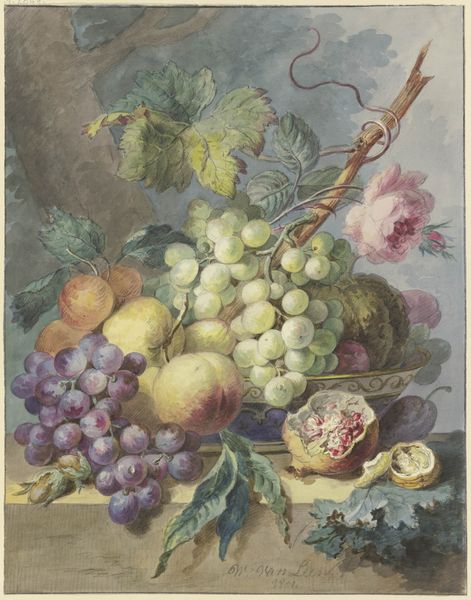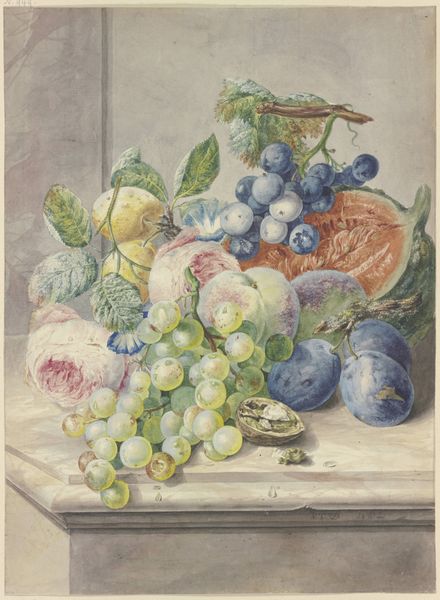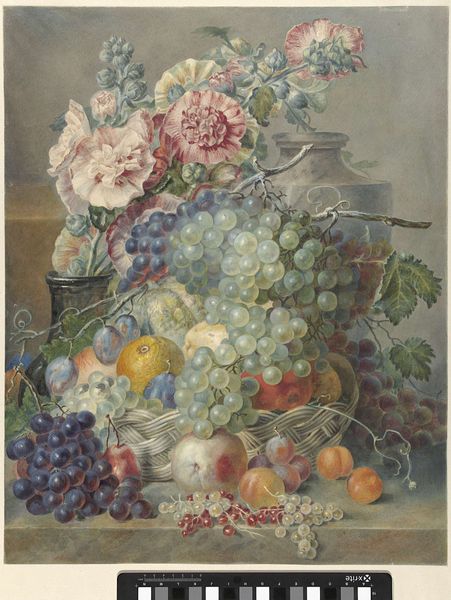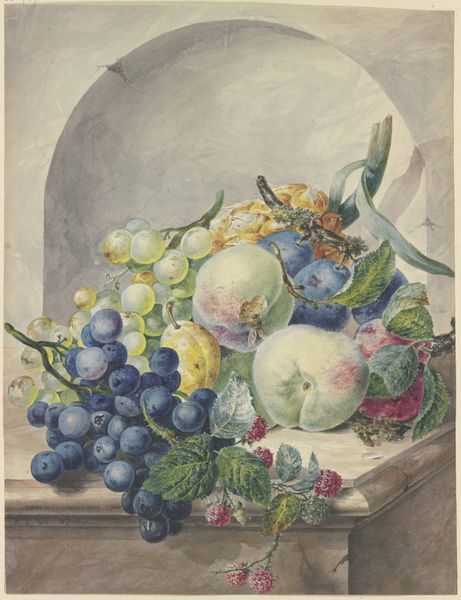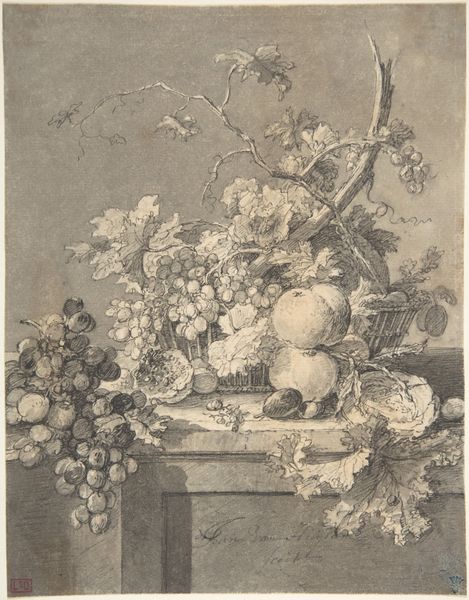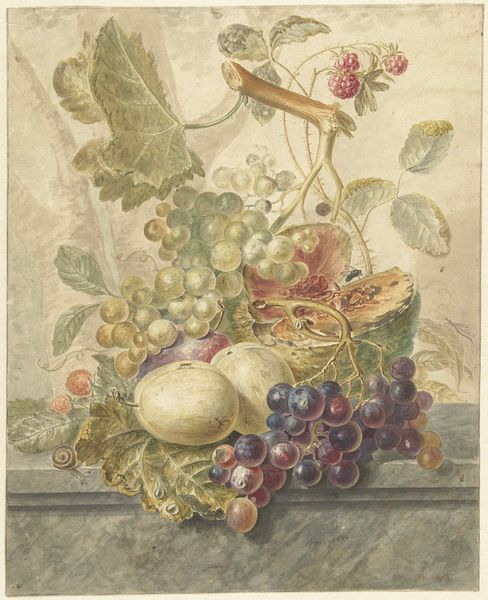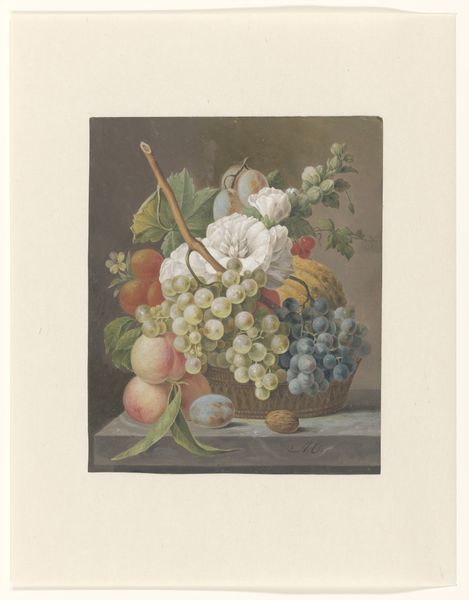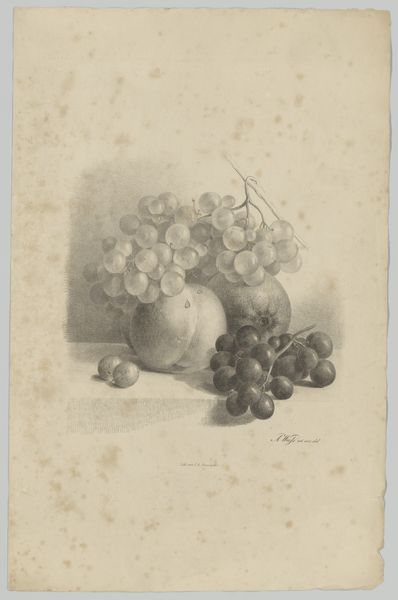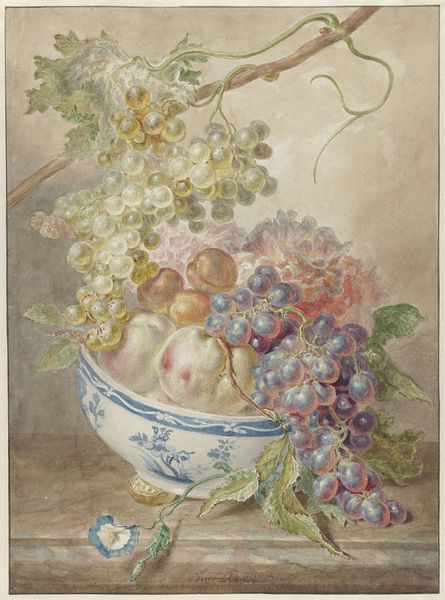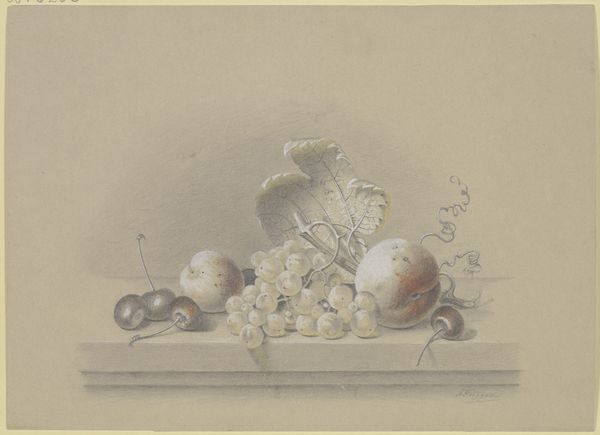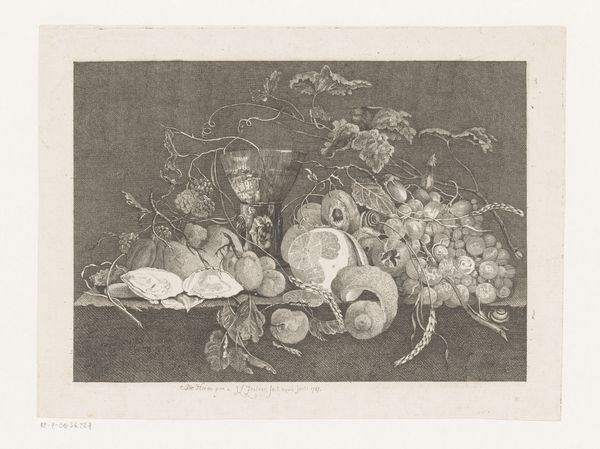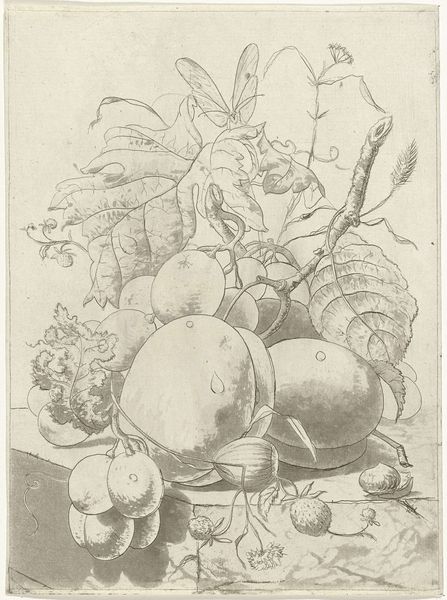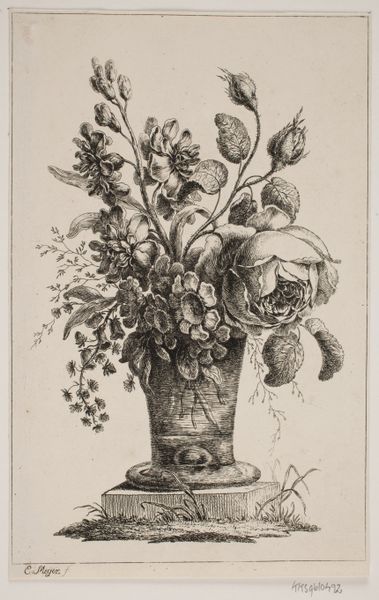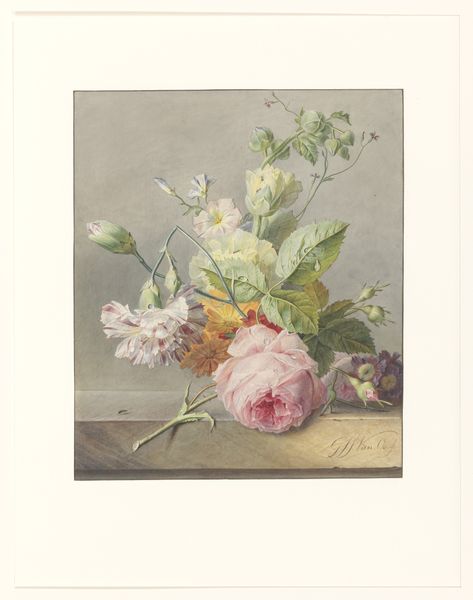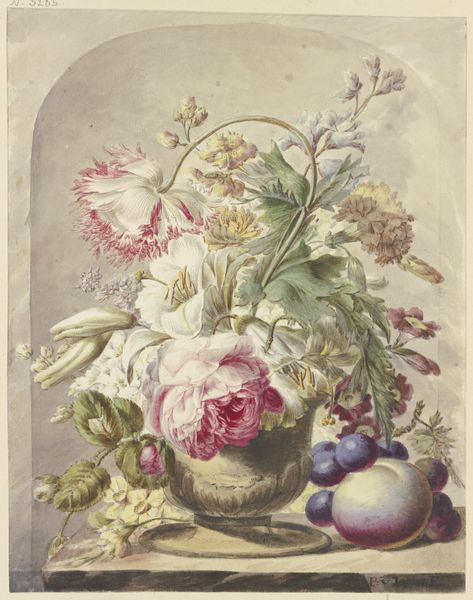
Still Life with Fruit and a Cherry Branch over a Berkemeyer Glass c. 1658
0:00
0:00
oil-paint, oil
#
baroque
#
dutch-golden-age
#
oil-paint
#
oil
#
oil painting
#
genre-painting
Dimensions: 48.3 x 36.8 x min. 0.7 cm
Copyright: Public Domain
Editor: This is Pieter de Ring’s "Still Life with Fruit and a Cherry Branch over a Berkemeyer Glass," painted around 1658. All the different textures are striking. What should we make of it? Curator: I think a materialist lens gives us great insight here. The luscious depiction of fruit and glass actually points to 17th century Dutch trade networks and the availability of such goods to a growing merchant class. Consider the artist’s technique – the skilled application of oil paint mimicking the textures and surfaces of luxury items designed to be desired, possessed, consumed, and discarded. The materiality represented within the painting underscores both availability of material goods and highlights painting as a form of labor. Does the skill with which de Ring worked serve to celebrate human ingenuity or something else? Editor: I see what you mean. The detailed depiction emphasizes the production and trade connections that make these objects accessible to middle class of the era, right? It's not *just* pretty fruit; it's about how and why that fruit exists in the Netherlands. Curator: Precisely. And consider the implications for the artist. They're now craftsmen, responding to the economic shifts of the Dutch Golden Age. It’s more than simply depicting luxury, isn’t it? It’s also an examination of value itself: material value and artistic labor in service to expanding commodity markets. Editor: Absolutely. It seems I was just seeing ripe fruit before, but this perspective really digs into the painting as a product and its relationship to society, and reveals a lot of socioeconomic implications within what seems like a traditional still life! Curator: Yes, looking at these elements allows us a much richer, contextual appreciation of the work, doesn't it?
Comments
No comments
Be the first to comment and join the conversation on the ultimate creative platform.
